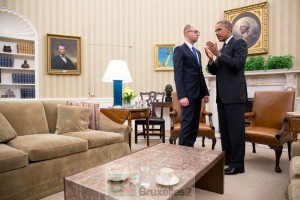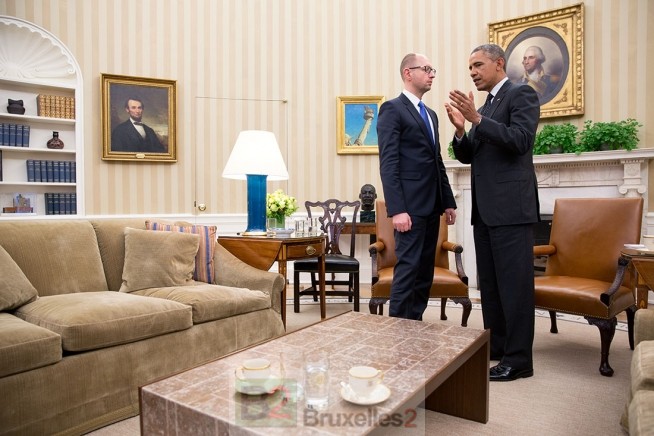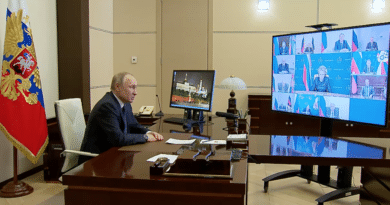Sanctions against Russia… Who wins? Venus or Mars

(BRUSSELS2) Faced with Russian advances in Crimea, Washington has announced, drum beating, the freezing, twice, of the assets of several personalities close to the Russian authorities. A bolt from the blue ! The Europeans were more discreet and progressive, appearing more timid in their approach. However, no offense to amateurs, if the noise of the first is louder, the discretion of the second seems more effective.
A slow effect of sanctions except...
First, there is a fact. These "individual" sanctions only have a possible effect in the very long term. They can only have a rapid effect on weak regimes, already "rotten" from within, and autocratic, where the regime is exercised in a personal, corrupt... and crumbly way. For example, on a power exercised in a family way as in Tunisia with Ben Ali, or in a very personal way as in Ukraine with Yanukovych, individual sanctions can have a rapid effect, as an additional backstop, in a situation where power is already weakened.
It doesn't work when power is wielded with an "iron fist", where "terror" is so effective that the slightest protest or desertion can be worth death. In this case, the sanctions have a limited, even counter-productive effect, contributing on the contrary to tightening the grip of power towards those close to them. This is what is happening in Syria. It also doesn't work when the 'iron' hand is wrapped in 'velvet' and power is not wielded by one man, but by a system. This may be the case in Russia.
In Moscow, we do not really feel an opposition capable of winning. On the contrary, the patriotic impulse born of the "reunification" of Crimea with Russia (this is how this "annexation" is presented) has rather consolidated power. This, despite appearances, is not exercised by a single isolated man but by a system. Around Putin there is not only a whole team but complete power.
The European ban more powerful than the American ban
This "very relative" effect of the sanctions indicated, it is necessary to look at which are the most effective? Sorry to disappoint those who bang on Europe as soon as it announces a decision. European decisions seem the "least ineffective". Quite simply, because the area covered by the EU is closer, wider and more important for Russia than the United States.
Moreover, behind the Europeans there are generally a certain number of countries from the continent. There is thus more probability that a Russian has assets in a Luxembourg, Austrian, Swiss bank... than in Washington or in the State of Dakota, has a residence or a luxury ship on the Bulgarian coast, the Côte d'Azur in Tuscany, than in the desert of Texas! Because the freezing of assets does not only concern bank assets, it concerns all kinds of assets, including real estate, which are difficult to move in 24 hours...
It's a bit like forbidding a petty criminal from the Parisian suburbs to frequent the ten neighboring towns - the supermarket and the cinema - or forbidding him to stay in Jersey and Guernsey. What do you think will have the most effect!
A war of words by "proxy"
The American sanctions appear to me more of the order of public communication and political pressure, not on Russia but on Europe. They have more of an effect by ricochet, by "proxy". By taking this type of sanction, the United States is thus forcing the Europeans to move forward a little harder, a little faster... And the real battle is being played out over economic sanctions. Which, again, is easier said and done for Americans than for Europeans. For the former, the consequences are more theoretical, or at least minimal; for the latter, hitting Russia with economic sanctions means agreeing to cut off one's arm... It's always easy to be tough when you're far away and the economic effect is minimal!


